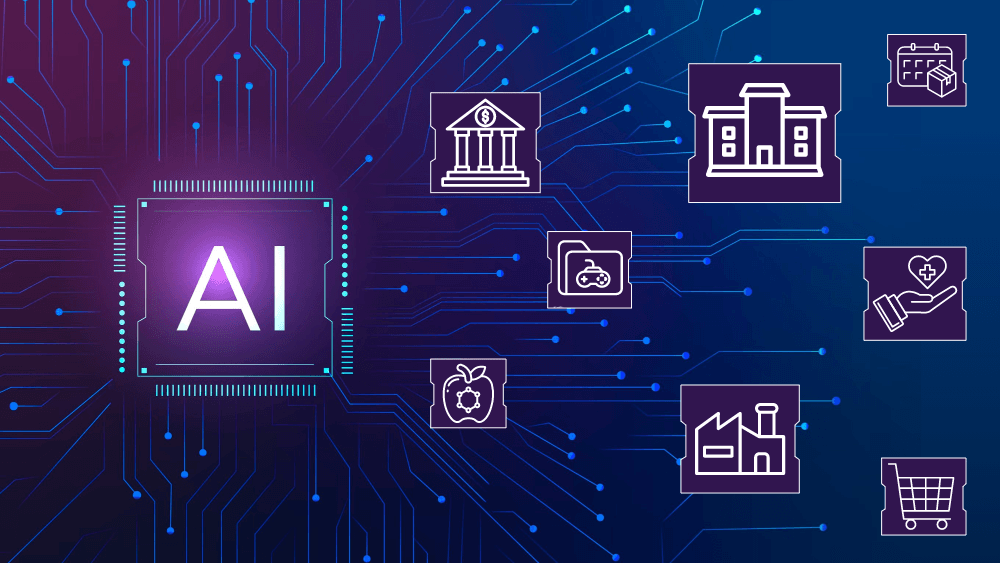The statement that “humans aren’t mentally ready for an AI-saturated ‘post-truth world'” reflects a concern about the potential impact of artificial intelligence (AI) on our society and the concept of truth. It suggests that the rapid advancement and integration of AI technologies may have negative consequences on human cognition and our ability to navigate an increasingly complex and information-rich world.
In a “post-truth world,” the objective facts and reality are often overshadowed by subjective opinions, misinformation, and manipulation of information. AI technologies can exacerbate this issue by generating and disseminating vast amounts of content, including deepfakes, fake news, and algorithmically tailored information that reinforces individuals’ existing beliefs. This can further polarize society and undermine trust in reliable sources of information.
One concern is that humans may struggle to discern between genuine and manipulated content, leading to confusion, mistrust, and a distorted understanding of reality. Additionally, the reliance on AI algorithms for personalized content recommendations can create filter bubbles, reinforcing preexisting biases and limiting exposure to diverse perspectives.
Furthermore, AI’s ability to manipulate information and create highly persuasive content raises ethical concerns. It becomes crucial to establish mechanisms to ensure transparency, accountability, and responsible use of AI to prevent malicious actors from exploiting these technologies for their own agendas.
To address these challenges, it is essential to promote media literacy, critical thinking, and ethical guidelines in the context of AI. Education and awareness programs can help individuals develop the necessary skills to evaluate information critically, fact-check claims, and understand the limitations of AI-generated content.
Regulatory frameworks and technological advancements can also play a significant role in mitigating the negative impact of AI on truth and human cognition. Implementing safeguards, such as transparency requirements for AI algorithms, promoting algorithmic fairness, and fostering interdisciplinary research, can help ensure that AI technologies are developed and used in ways that align with societal values and promote a more informed and truth-oriented society.
Ultimately, addressing the challenges posed by an AI-saturated “post-truth world” requires a collective effort involving governments, technology developers, educators, and individuals themselves. By proactively engaging with these issues, we can work towards a future where AI enhances our understanding of the world while preserving the integrity of truth and fostering critical thinking.
Also Read : How generative AI is creating new classes of security threats
Certainly! Here are some additional points to consider regarding the statement:
- Cognitive biases: Humans are prone to various cognitive biases, such as confirmation bias and availability bias, which can influence their judgment and decision-making. In a post-truth world saturated with AI-generated content, these biases can be amplified as individuals may be more likely to gravitate towards information that aligns with their existing beliefs, leading to further polarization and a distorted reality.
- Emotional manipulation: AI algorithms can analyze vast amounts of data, including personal preferences, emotions, and behaviors, to target individuals with tailored content that triggers specific emotional responses. This manipulation of emotions can cloud judgment and impair critical thinking, making it even more challenging for humans to navigate through a post-truth world where emotions are exploited for ulterior motives.
- Lack of context and nuance: AI systems typically analyze data patterns and correlations to make predictions or generate content. However, they may struggle to grasp the complexities of human experiences, cultural nuances, and contextual understanding. As a result, AI-generated information may lack the depth, context, and subtleties that humans can comprehend, leading to a loss of important perspectives and a shallower understanding of complex issues.
- Trust and accountability: The widespread dissemination of misinformation and deepfakes can erode trust in traditional sources of information, such as news organizations and authoritative figures. As AI continues to advance, the challenge of distinguishing between genuine and manipulated content becomes more daunting. Rebuilding trust and establishing accountability mechanisms for AI-generated content are crucial to combat the erosion of truth in a post-truth world.
- Psychological impact: Living in an AI-saturated post-truth world can have psychological consequences. Constant exposure to misinformation, contradictory narratives, and manipulated content can create anxiety, confusion, and a sense of disillusionment. It can also contribute to information overload and decision fatigue, further impacting mental well-being and the ability to make informed choices.
- Ethical dilemmas: AI raises ethical questions about the responsibility of developers, organizations, and individuals in ensuring the responsible use of technology. The potential for AI to be weaponized for propaganda, surveillance, and manipulation calls for ethical frameworks, regulations, and international cooperation to safeguard against its negative implications on truth and human cognition.
- Fragmentation of reality: In a post-truth world saturated with AI-generated content, individuals may become more fragmented in their perception of reality. The personalized nature of AI algorithms can create echo chambers where people are exposed only to information that reinforces their existing beliefs. This can lead to the formation of distinct and isolated groups with divergent understandings of truth, hindering meaningful dialogue and societal cohesion.
- Deprioritization of critical thinking skills: As AI technologies become more capable of performing cognitive tasks, there is a risk of humans relying excessively on AI systems for decision-making and information processing. This overreliance can lead to a decline in critical thinking skills, as individuals may become less inclined to question or evaluate the information presented to them. In a post-truth world, the ability to think critically becomes even more essential to navigate the complex landscape of information.
- Reinforcement of biases: AI algorithms learn from historical data, which can inadvertently perpetuate existing biases and inequalities present in society. If the data used to train AI systems is biased or reflects societal prejudices, the output generated by these systems may reinforce and perpetuate those biases. This can further entrench divisions and hinder progress towards a more equitable and inclusive society.
- Disruption of traditional industries and labor market: The widespread integration of AI technologies in various sectors can lead to significant disruptions in the job market. As AI automation replaces certain job roles, there can be economic and social implications, including unemployment, income inequality, and societal unrest. Navigating these challenges requires proactive measures to reskill and adapt the workforce to the changing demands of an AI-driven society.
- Privacy and data security concerns: AI technologies heavily rely on data, often personal and sensitive in nature. The collection, storage, and analysis of vast amounts of data raise concerns about privacy and data security. If AI systems are not appropriately governed and secured, there is a risk of data breaches, unauthorized access, and misuse of personal information, further eroding trust in AI and exacerbating the challenges of a post-truth world.
- Lack of AI literacy: For individuals to effectively navigate an AI-saturated post-truth world, there is a need for widespread AI literacy. Understanding the capabilities, limitations, and potential biases of AI systems is crucial to make informed decisions and critically evaluate AI-generated content. Ensuring access to AI education and promoting digital literacy can empower individuals to engage responsibly with AI technologies and navigate the challenges they present.
- In conclusion, the integration of AI in a post-truth world raises concerns about the fragmentation of reality, the deprioritization of critical thinking, the reinforcement of biases, economic disruptions, privacy and security issues, and the need for widespread AI literacy. Addressing these concerns requires a comprehensive and interdisciplinary approach involving education, regulation, and ethical guidelines to ensure that AI technologies are developed and deployed in a manner that benefits society as a whole.
In summary, the advent of AI in a post-truth world presents significant challenges for human cognition and our ability to discern truth from falsehood. Addressing these challenges requires a multifaceted approach that includes education, regulation, technological advancements, and a collective commitment to upholding the principles of truth, critical thinking, and ethical use of AI.

Frequently Asked Questions
Q: What is a post-truth world? A: A post-truth world refers to a societal state in which objective facts and truth are less influential in shaping public opinion and beliefs than appeals to emotions, personal beliefs, and subjective interpretations of events. In such a world, misinformation, propaganda, and manipulation of information can thrive, making it challenging to discern and establish a common understanding of reality.
Q: What role does AI play in a post-truth world? A: AI can play both positive and negative roles in a post-truth world. On the positive side, AI can assist in fact-checking, content moderation, and detecting misinformation. However, AI can also be used to generate and spread false information, create convincing deepfakes, and manipulate public opinion through algorithmically tailored content, exacerbating the challenges of a post-truth society.
Q: Why aren’t humans mentally ready for an AI-saturated post-truth world? A: Humans may not be mentally ready for an AI-saturated post-truth world due to several factors. These include cognitive biases that can be amplified and manipulated in the face of AI-generated content, the emotional manipulation and targeting of individuals by AI algorithms, the lack of context and nuance in AI-generated information, and the erosion of trust in reliable sources of information due to the prevalence of misinformation and deepfakes.
Q: How can humans prepare themselves for an AI-saturated post-truth world? A: Humans can prepare themselves for an AI-saturated post-truth world by developing critical thinking skills, media literacy, and the ability to evaluate information critically. It is important to stay informed about AI technologies, their limitations, and potential biases. Promoting ethical guidelines, responsible use of AI, and transparency in AI algorithms can also help individuals navigate and mitigate the challenges of a post-truth world.
Q: What are the potential consequences of living in a post-truth world? A: Living in a post-truth world can have various consequences, such as increased polarization and division in society, erosion of trust in institutions and reliable sources of information, distortion of reality, psychological impacts such as anxiety and confusion, and the manipulation of public opinion. It can also pose challenges to democratic processes, as well as ethical dilemmas related to the responsible use of AI technologies.
Q: What measures can be taken to address the challenges of a post-truth world? A: Addressing the challenges of a post-truth world requires a multi-faceted approach. This includes promoting media literacy and critical thinking skills, implementing regulatory frameworks and transparency requirements for AI algorithms, fostering interdisciplinary research, encouraging ethical guidelines for AI development and use, and promoting education and awareness programs to empower individuals to navigate the complexities of a post-truth world.
Q: How can AI be used to combat the challenges of a post-truth world? A: AI can be used to combat the challenges of a post-truth world by assisting in fact-checking and content moderation, identifying and flagging misinformation, and developing algorithms that promote diverse perspectives and minimize biases. Additionally, AI can aid in the development of tools and techniques to detect and counter deepfakes and provide individuals with AI-powered tools to verify and validate information.

